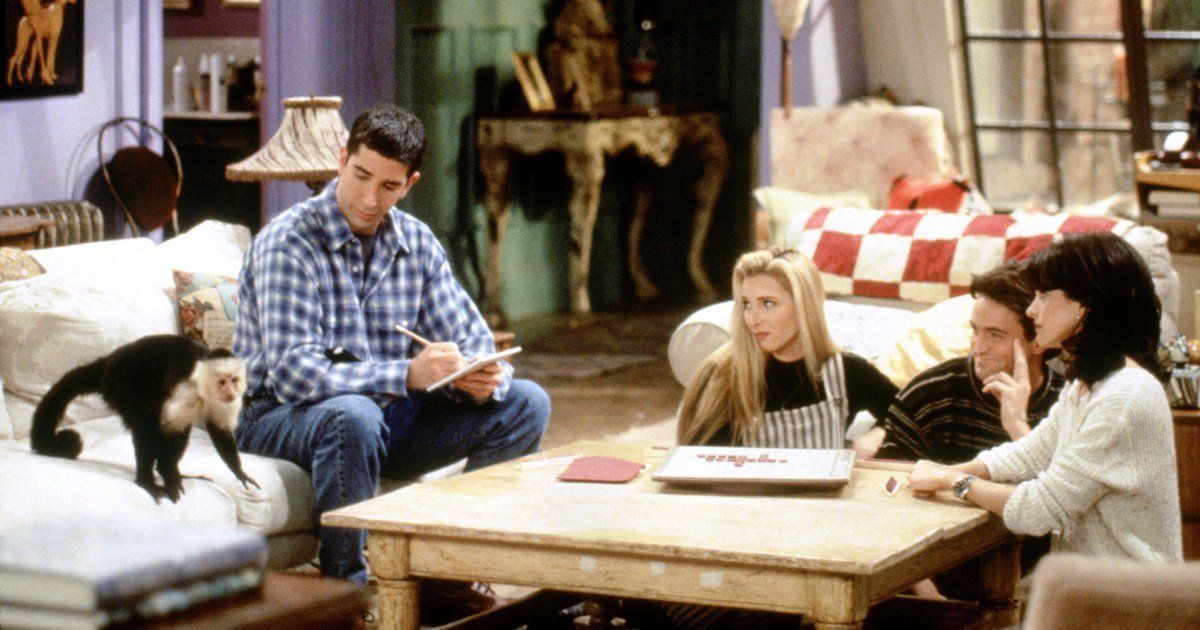Since it was announced that a Friends reunion is finally happening, the internet has been buzzing more than ever about the '90s favorite. With the show celebrating its 26th birthday this year, older fans may be confused about why a generation of people who weren't even born at the time of the original run are as in love with the show as those who watched when it was broadcast from 1994 to 2004.
Thanks to the show's availability for streaming on Netflix starting in 2015, Friends once again was given free rein to invade households all over the world. Although the series is no longer available on the streaming platform in the United States, the impact it has made on new viewers in just five years is indisputable, if not a little puzzling. With '90s fashion also inching its way back into the zeitgeist one windbreaker at a time, it is only natural that one of the pillars of '90s pop culture came back with as much vengeance as Susie "Underpants" Moss in episode "The One After the Superbowl" in the show's second season.
The show's continuing relatability is a key reason it remains so popular. In a world of unattainable beauty standards on TV and social media, the Friends cast is very approachable, with all the characters literally being the guy or girl-next-door. The types of people exemplified by this group of friends are not outlandish or too perfect. They are undeniably flawed but we love them anyway, just like our real friends. Not only that, no matter what generation the viewer is a part of, chances are they can see themselves in one or more of the characters. Whether you're charming like Joey, funny like Chandler, intellectual like Ross, neurotic like Monica, quirky like Phoebe or confident like Rachel, there is a "friend" in everyone -- and sometimes two or three.
As Friends co-creator Marta Kaufman said in an interview with Rolling Stone in 2019, "the show is about a time in your life when your friends are your family." Every person, regardless of age or generation, can understand to this sentiment at one time or another. When you're young and life is just starting to throw its curveballs, it's a commonly shared dream that our support system could always just be waiting at the local coffee shop to deal out laughter and advice whenever we need it. In Friends, the gang's trials, tribulations and moments of joy are all shared with viewers who have gone through (or are going through) similar challenges in their own lives. Seeing Ross, Rachel, Monica, Joey, Phoebe and Chandler get through the tough moments in life echoes this "us against the world" mentality and subtly communicates to viewers that they can take on anything life throws at them too.
By focusing on the support system of the friends, the show is eternally aspirational to its younger viewers who hope to have the same kinds of friendships in their lives as they grapple with similar problems. Regardless of when they grow up, almost all young people across the globe have to deal with bad jobs, questionable relationship choices and finding themselves.
The aspirational quality of Friends extends to its seemingly utopian setting where everyone can afford to live in huge (by New York standards) apartments while working low-paying jobs and never get fired from those jobs despite spending most of their time at Central Perk. The friends never worry about real-life adult issues such as bills and debt, which contributes to an appealing degree of lighthearted escapism where, for the next 23 minutes, the biggest problem is helping Rachel locate Ross's lost monkey.
Much like the similarly popular sitcom, The Office, the iconic status of Friends can also be attributed to the show's nostalgic time period. Friends takes us back to a time before mobile phones, Instagram and dating apps took over the lives of modern 20-somethings, where leaving voicemails and going on bad blind dates was a huge source of relationship drama and stories to talk about over a cup of coffee. Even though Gen Z-ers may never be unable to reach anyone whenever and wherever, watching Friends' pre-mobile phone world is a therapeutic demonstration of life without constant contact with the online world.
Whether it's your favorite show or not, there’s no question Friends has attracted viewers from numerous generations with easily distinguished characters and by fueling dreams of an ideal young life filled with meaningful relationships. This perpetual classic proves that being funny and relatable never gets old.



